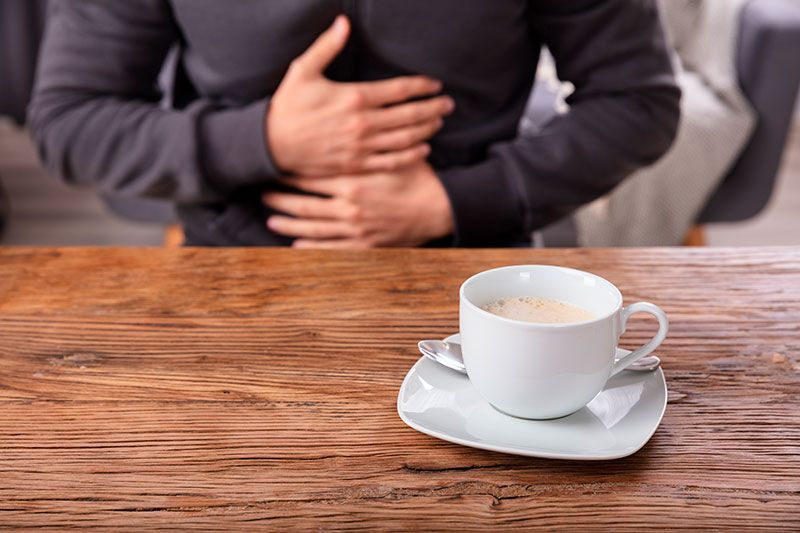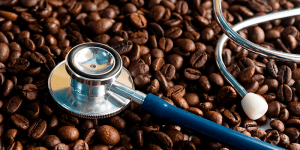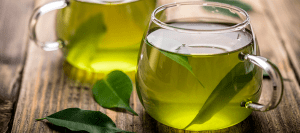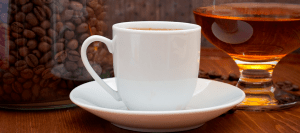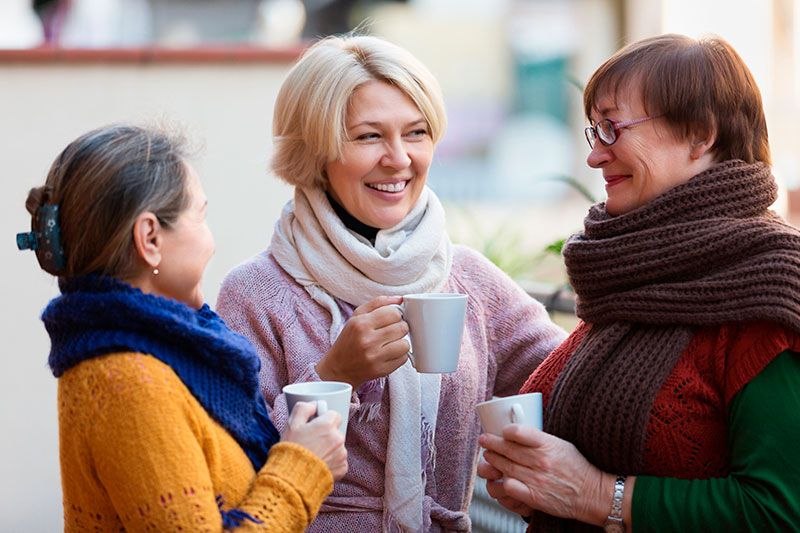El consumo de café y el riesgo de cáncer gástrico y cáncer de páncreas
27-04-2017
Este estudio se diseñó para evaluar la asociación entre el consumo de café y el riesgo de cáncer de estómago y páncreas. La investigación, que contó con la participación de más de 60.000 personas, midió los parámetros a estudio en la línea de base y durante el seguimiento que duró, en promedio, 18 años. Los investigadores encontraron una relación inversa no significativa entre el consumo de café y el riesgo de cáncer gástrico en los hombres pero no en las mujeres, y concluyeron que no hay una asociación significativa entre el consumo de esta bebida y los dos tipos de cáncer.
Bidel S, Hu G, Jousilahti P, Pukkala E, Hakulinen T, Tuomilehto J. Coffee consumption and risk of gastric and pancreatic cancer–a prospective cohort study. Int J Cancer. 2013 Apr 1;132(7):1651-9.
1. The Association of the Nordic Cancer Registries (ANCR). Available from: http://www-dep.iarc.fr/ NORDCAN/english/frame.asp
2. Parkin DM, Bray F, Ferlay J, Pisani P. Global cancer statistics, 2002. CA: Cancer Journal for Clinicians 2005;55:74–108.
3. Cancer (Fact sheet N 297). World Health Organization. February 2009. http://www.who.int/mediacentre/factsheets/fs297/en/. Retrieved 2009- 05-11.
4. McMichael AJ, McCall MG, Hartshorne JM, Woodings TL. Patterns of gastro-intestinal cancer in European migrants to Australia: the role of dietary change. Int J Cancer 1980;25:431–7.
5. Institute for Statistical and Epidemiological Cancer Research. Cancer in Finland. Finnish Cancer Registry. Available from: http://www.cancerregistry.fi/eng/statistics/.
6. Joossens JV, Hill MJ, Elliott P, Stamler R, Lesaffre E, Dyer A, Nichols R, Kesteloot H. Dietary salt, nitrate and stomach cancer mortality in 24 countries. European Cancer Prevention (ECP) and the INTERSALT Cooperative Research Group. Int J Epidemiol 1996;25:494–504.
7. Tsugane S. Salt, salted food intake, and risk of gastric cancer: epidemiologic evidence. Cancer Sci 2005;96:1–6.
8. Navarro Silvera SA, Mayne ST, Risch H, Gammon MD, Vaughan TL, Chow WH, Dubrow R, Schoenberg JB, Stanford JL, West AB, Rotterdam H, Blot WJ, Fraumeni JF Jr. Food group intake and risk of subtypes of esophageal and gastric cancer. Int J Cancer 2008;123:852–60.
9. Engel LS, Chow WH, Vaughan TL, Gammon MD, Risch HA, Stanford JL, Schoenberg JB, Mayne ST, Dubrow R, Rotterdam H, West AB, Blaser M, Blot WJ, Gail MH, Fraumeni JF Jr. Population attributable risks of esophageal and gastric cancers. J Natl Cancer Inst 2003;95: 1404–13.
10. Gajperia C, Barbiere JM, Greenberg D, Wright K, Lyratzopoulos G. Recent incidence trends and sociodemographic features of oesophageal and gastric cancer types in an English region. Aliment Pharmacol Ther 2009;30:873–80.
11. Regine WF, John WJ, Mohiuddin M. Adjuvant therapy for pancreatic cancer: current status. Front Biosci 1998;3:E186–E192.
12. National Cancer Institute. Surveillance, Epidemiology, and End Results Program. SEER cancer statistics review, 1973–1994: tables and graphs. Bethesda, MD: National Cancer Institute, 1997. Available at http://seer.cancer.gov/csr/1975_2008/.
13. Fuchs CS, Colditz GA, Stampfer MJ, Giovannucci CL, Hunter DJ, Rimm EB, Willett WC, Speizer FF. A prospective study of cigarette smoking and the risk of pancreatic cancer. Arch Intern Med 1996;156:2255–60.
14. Zheng W, McLaughlin JK, Gridley G, Bjelke E, Schuman LM, Silverman DT, Wacholder, Co- Chien HT, Blot WJ, Fraumeni JF Jr. A cohort study of smoking, alcohol consumption, and dietary factors for pancreatic cancer (United States). Cancer Causes Controls 1993;4:477–82.
15. Harnack LJ, Anderson KE, Zheng W, Folsom AK, Sellers TA, Kushi LH. Smoking, alcohol, coffee, and tea intake and incidence of cancer of the exocrine pancreas: the Iowa Women’s Health Study. Cancer Epidemiol Biomarkers Prev 1997;6:1081–6.
16. Nilsen TL, Vatten LJ. A prospective study of lifestyle factors and the risk of pancreatic cancer in Nord-Trondelag, Norway. Cancer Causes Control 2000;11:645–52.
17. Silverman DT, Schiffman M, Everhart J, Goldstein A, Lillemoe KD, Swanson GM, Schwartz AG, Brown JM, Greenberg RS, Schoenberg JB, Pottern LM, Hoover RN, et al. Diabetes mellitus, other medical conditions and familial history of cancer as risk factors for pancreatic cancer. Br J Cancer 1999;80:1830–7.
18. Hruban RH, Petersen GM, Ha PK, Kern SE. Genetics of pancreatic cancer. From genes to families. Surg Oncol Clin N Am 1998;8:324–6.
19. Olsen GW, Mandel JS, Gibson RW, Wattenberg LW, Schuman LM. A case-control study of pancreatic cancer and cigarette, alcohol, coffee and diet. Am J Public Health 1989;79:1016–9.
20. Lyon JL, Mahoney AW, French TK, Moser R Jr. Coffee consumption and cancer of the pancreas: a case-control study in a low-risk population.
Epidemiology 1992;3:164–70.
21. Gullo L, Pezzilli R, Morselli-Labate AM. Coffee and cancer of the pancreas. Pancreas 1995;11:223–9.
22. International Coffee Organization (ICO). ICO Documents. Coffee Market Report, January 2007. Available at: http://www.ico.org/documents/cmr0107e.pdf
23. Nehlig A, Debry G. Potential genotoxic, mutagenic and antimutagenic effects of coffee: a review. Mutat Res 1994;317:145–62.
24. PortaM, Vioque J, AyudeD,Alguacil J, JariodM, Ruiz L, et al. Coffee drinking: the rationale for treating it as a potential effect modifier of carcinogenic exposures. Eur J Epidemiol 2003;18:289–98.
25. Michaud DS, Giovannucci E, Willett WC, Colditz GA, Fuchs CS. Coffee and alcohol consumption and the risk of pancreatic cancer in two prospective United States cohorts. Cancer Epidemiol Biomarkers Prev 2001;10:429–37.
26. Partanen T, Hemminki K, Vainio H, Kauppinen T. Coffee consumption not associated with risk of pancreas cancer in Finland. PrevMed 1995;24:213–6.
27. Botelho F, Lunet N, Barros H. Coffee and gastric cancer: systematic review and meta-analysis. Cad Saude Publica 2006;22:889–900.
28. Vartiainen E, Jousilahti P, Alfthan G, Sundvall J, Pietinen P, Puska P. Cardiovascular risk factor changes in Finland, 1972–1997. Int J Epidemiol 2000;29:49–56.
29. Pajak A, Kuulasmaa K, Tuomilehto J, Ruokokoski E. Geographical variation in the major risk factors of coronary heart disease in men and women aged 35–64 years. The WHO MONICA Project. World Health Stat Q 1988;41:115–40.
30. Hu G, Qiao Q, Silventoinen K, Eriksson JG, Jousilahti P, Lindstr€om J, Valle TT, Nissinen A, Tuomilehto J. Occupational, commuting, leisuretime physical activity in relation to risk for type 2 diabetes in middle-aged Finnish men and women. Diabetologia 2003;46:322–29.
31. Tuomilehto J, Hu G, Bidel S, Lindstrom J, Jousilahti P. Coffee consumption and risk of type 2 diabetes mellitus among middle-aged Finnish men and women. JAMA 2004;291:1213–19.
32. Hu G, Jousilahti P, Nissinen A, Bidel S, Antikainen R, Tuomilehto J. Coffee consumption and the incidence of antihypertensive drug treatment in Finnish men and women. Am J Clin Nutr 2007;86:457–64.
33. Hu G, Tuomilehto J, Pukkala E, Hakulinen T, Antikainen R, Vartiainen E, Jousilahti P. Joint effects of coffee consumption and serum gammaglutamyltransferase on the risk of liver cancer. Hepatology 2008;48:129–36.
34. Teppo L, Pukkala E, Lehtonen M. Data quality and quality control of a population-based cancer registry. Experience in Finland. Acta Oncol 1994; 33:365–9.
35. Cox DR. Regression models and life tables (with discussion). J R Stat Soc B 1972;34:187–220.
36. Stensvold I, Jacobsen BK. Coffee and cancer: a prospective study of 43,000 Norwegian men and women. Cancer Causes Control 1994;5:401–8.
37. Jacobsen BK, Bjelke E, Kvale G, Heuch I. Coffee drinking, mortality, and cancer incidence: results
from a Norwegian prospective study. J Natl Cancer Inst 1986;76:823–31.
38. Larsson SC, Giovannucci E, Wolk A. Coffee consumption and stomach cancer risk in a cohort of Swedish women. Int J Cancer 2006; 119:2186–9.
39. World Cancer Research Fund/American Institute for Cancer Research. Food, nutrition and the prevention of cancer: a global perspective. Washington, DC: World Cancer Research Fund/American Institute for Cancer Research, 1997.
40. IARC. IARC Monographs: evaluation of carcinogenic risks to humans. Coffee, tea, mate, methylxanthines and methylglyoxal. Vol. 51. Lyon, France: International Agency for Cancer Research; 1991.
41. Lin Y, Tamakoshi A, Kawamura T, Inaba Y, Kikuchi S, Motohashi Y, Kurosawa M, Ohno Y. Risk of pancreatic cancer in relation to alcohol drinking, coffee consumption and medical history: findings from the Japan collaborative cohort study for evaluation of cancer risk. Int J Cancer 2002;99:742–6.
42. Luo J, Inoue M, Iwasaki M, Sasazuki S, Otani T, Ye W, Tsugane S; JPHC Study Group. Green tea and coffee intake and risk of pancreatic cancer in a large-scale, population-based cohort study in Japan (JPHC study). Eur J Cancer Prev 2007;16:542–8.
43. Isaksson B, Jonsson F, Pedersen NL, Larsson J, Feychting M, Permert J. Lifestyle factors and pancreatic cancer risk: a cohort study from the
Swedish Twin Registry. Int J Cancer 2002;98: 480–2.
44. Bao Y, Stolzenberg-Solomon R, Jiao L, Silverman DT, Subar AF, Park Y, Leitzmann MF, Hollenbeck A, Schatzkin A, Michaud DS. Added sugar and sugar-sweetened foods and beverages and the risk of pancreatic cancer in the National Institutes of Health-AARP Diet and Health
Study. Am J Clin Nutr 2008;88:431–40.
45. Bracken MB, Triche E, Grosso L, Hellenbrand K, Belanger K, Leaderer BP. Heterogeneity in assessing self-reports of caffeine exposure: implications for studies of health effects. Epidemiology 2002;13:165–71.
46. McCusker RR, Goldberger BA, Cone EJ. Caffeine content of specialty coffees. J Anal Toxicol 2003; 27:520–2.
47. Mohr U, Emura M, Riebe-Imre M. Experimental studies on carcinogenicity and mutagenicity of caffeine. In: Garattini S, ed. Caffeine, coffee, and health. New York: Raven Press, 1993. 17–41.
48. International Agency for Research on Cancer. Coffee, tea, mate, methylxanthines, and methylglyoxal. IARC Monogr Eval Carcinog Risks Hum 1991;51:1–513.








